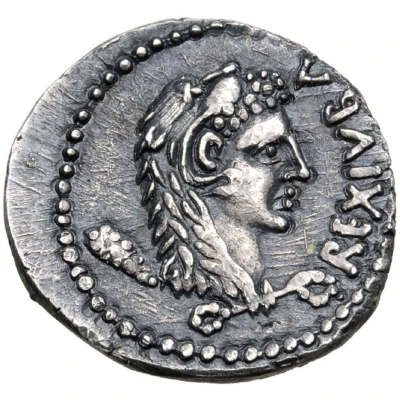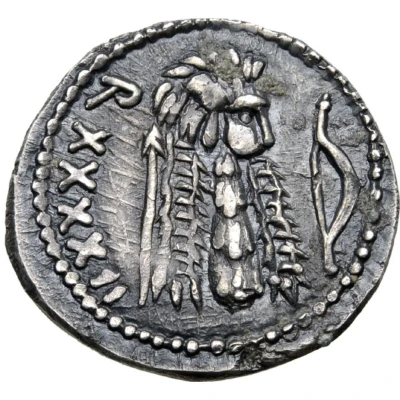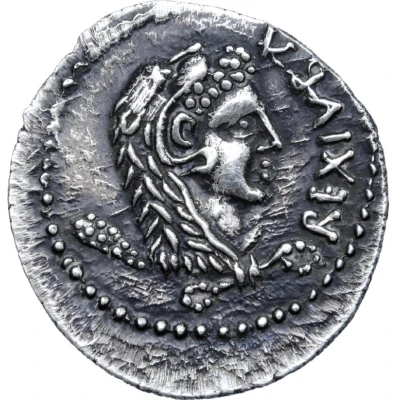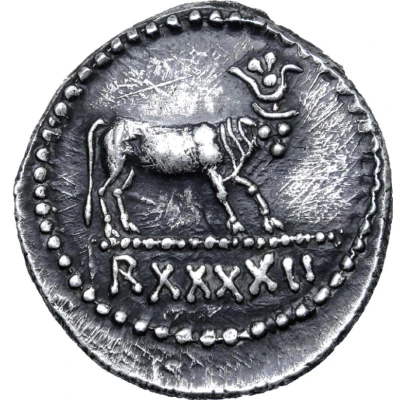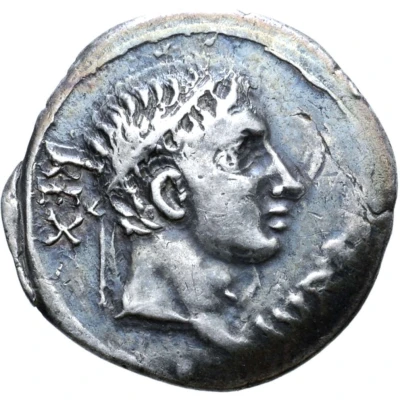
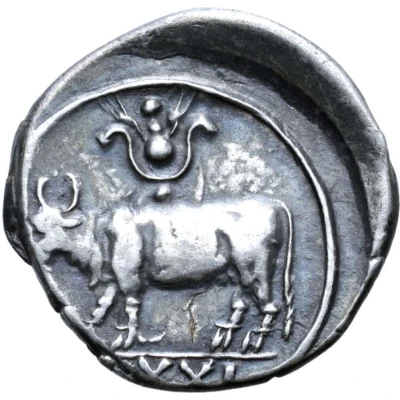

© Roma Numismatics Limited
Denarius - Juba II Caesarea
42 (17) year| Silver | 2.82 g | 18 mm |
| Issuer | Mauretania |
|---|---|
| King | Juba II (25 BC - 23 AD) |
| Type | Standard circulation coin |
| Year | 42 (17) |
| Calendar | Mauretania - Juba II era |
| Value | 1 Denarius |
| Currency | Denarius (25BC-40AD) |
| Composition | Silver |
| Weight | 2.82 g |
| Diameter | 18 mm |
| Shape | Round (irregular) |
| Technique | Hammered |
| Orientation | Variable alignment ↺ |
| Demonetized | Yes |
| Updated | 2024-10-10 |
| Numista | N#379570 |
|---|---|
| Rarity index | 100% |
Reverse
Bull standing to left on ground line, head facing, headdress of Isis above; R XXXXII (date) in exergue.
Script: Latin
Lettering: R XXXXII
Comment
The Banasa Hoard, deposited in circa AD 18-17 was found in 1907 near modern day Souk-el Arbaa, 120 km northeast of Rabat, Morocco, in 1907. The hoard was previously said to be from Alkazar (El Ksar El Kebir), 70 km south of Tangier and hence is occasionally referred to as the El Ksar Hoard. The group contained approximately 4000 silver coins and one bronze. A substantial number of the coins now reside in public collections, principally in London, Paris, Berlin, Athens, New York and Algiers.Interesting fact
The Denarius - Juba II (Caesarea) 42 (17) coin from Mauretania was minted during the reign of Juba II, who was a Roman client king of Mauretania (present-day Morocco) from 25 BC to 23 AD. The coin features an image of Juba II on one side and a Roman goddess on the other, symbolizing the kingdom's close ties with the Roman Empire. Despite being a small kingdom, Mauretania played a significant role in the Roman Empire's trade and commerce, particularly in the export of precious metals like silver.
